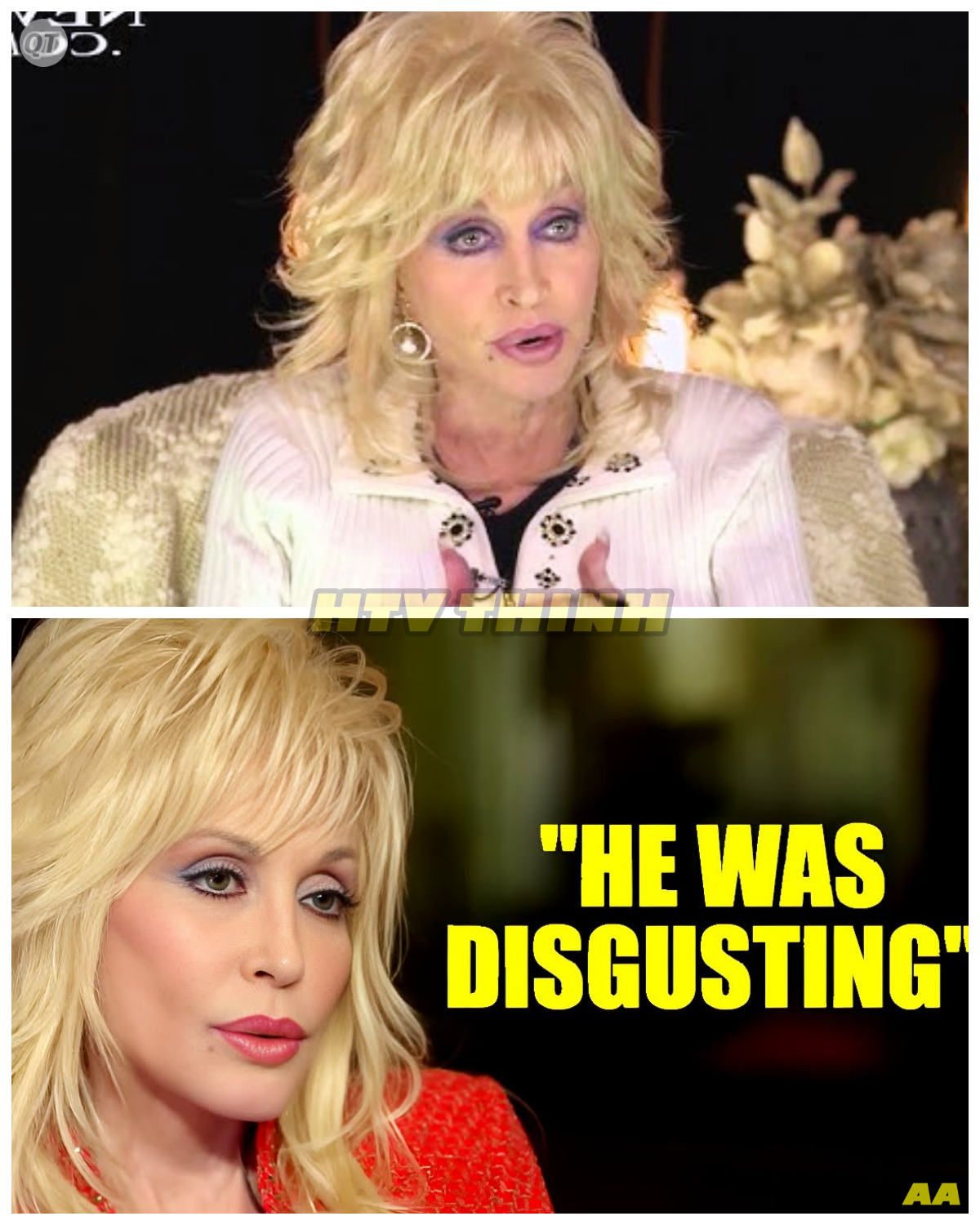Dolly Parton UNLEASHES Her Truth: These Are The Five Singers She Could Never Stand – The Music World Is SHOCKED! After years of smiling through the pain, Dolly Parton finally tells the world who the five singers she secretly despised were, and her reasons are more intense than anyone imagined.
Posted by
–
Behind the Glitter: Dolly Parton’s Shocking Confessions About the Five Singers She Hated Most

Dolly Parton, America’s sweetheart and country music’s beloved icon, has spent decades enchanting the world with her voice, charm, and generosity.
Her radiant smile and warm personality have made her a symbol of kindness and resilience.
But beneath that dazzling exterior lies a story few have heard — a story of tension, betrayal, and legendary feuds that never made the headlines.
For years, Dolly maintained her image as the ultimate sweetheart, rarely speaking ill of others.
Yet, in a rare and candid moment, she finally reveals the five singers she hated the most.
These confessions peel back the layers of fame to expose the complex, often harsh realities of the music industry.
The first name on Dolly’s list is Porter Wagoner, a man who played a pivotal role in launching her career.
Their professional relationship was complicated, marked by both mentorship and conflict.
Dolly admired Porter’s talent but resented his controlling nature and the power he wielded over her early career decisions.
She describes moments when she felt stifled and overshadowed, trapped in a dynamic that blurred the lines between support and domination.
Their eventual falling out was painful, leaving wounds that took years to heal.

Next is Loretta Lynn, another country legend whose rivalry with Dolly was as famous as their music.
Though the public often framed their relationship as friendly competition, Dolly admits there were times of genuine animosity.
She recalls instances of jealousy and professional clashes that fueled a complicated mix of respect and resentment.
Their feud was a reflection of the pressures faced by women in a male-dominated industry, where success often came at the expense of solidarity.
Tammy Wynette is the third singer Dolly names, a figure both admired and begrudged.
Their relationship was marked by a mixture of admiration for each other’s talents and underlying tensions.
Dolly shares stories of behind-the-scenes conflicts and moments when rivalry overshadowed camaraderie.
The competitive atmosphere of the country music scene sometimes turned allies into adversaries, and Tammy was no exception.
Fourth on the list is Reba McEntire, a powerhouse in her own right whose rising fame created friction.
Dolly speaks about the challenges of sharing the spotlight and the feelings of being threatened by Reba’s success.
Their interactions, while often professional, were tinged with undercurrents of rivalry and unspoken competition.
This tension highlights the difficulty of navigating friendships and careers in an industry where only a few can reign supreme at once.
Finally, Dolly names Crystal Gayle, a singer whose style and image clashed with her own.
Though less publicized, their rivalry was no less real.
Dolly felt overshadowed at times by Crystal’s smooth voice and crossover appeal, which attracted a different audience.
The competition between them was a reminder of how diverse and fragmented the country music world could be, with artists vying for distinct yet overlapping fan bases.

Why did Dolly Parton keep these feelings hidden for so long?
She explains that maintaining a positive public image was crucial to her career and personal brand.
Speaking ill of others risked alienating fans and industry insiders alike.
Moreover, the culture of the music business often discouraged open conflict, favoring diplomacy and smiles over honesty.
Who humiliated her behind the scenes?
Dolly hints at moments when these singers, or their entourages, undermined her efforts or spread rumors.
These humiliations were subtle yet painful, eroding trust and complicating professional relationships.
They reveal the cutthroat nature of the industry, where competition sometimes turned personal.
And who betrayed her when she needed support the most?
The answer lies in the fractured friendships and alliances that shifted with the tides of fame and fortune.
Dolly’s revelations expose the loneliness that can accompany stardom, even among peers who share similar struggles.
This confession from Dolly Parton is not just about grudges or rivalries.
It is a window into the realities of being a woman in country music, navigating a world where talent alone is not enough.
Her story highlights the emotional toll of maintaining success amid jealousy, competition, and betrayal.
Despite these conflicts, Dolly’s legacy remains untarnished.
Her ability to forgive, grow, and continue inspiring millions speaks to her strength and character.





